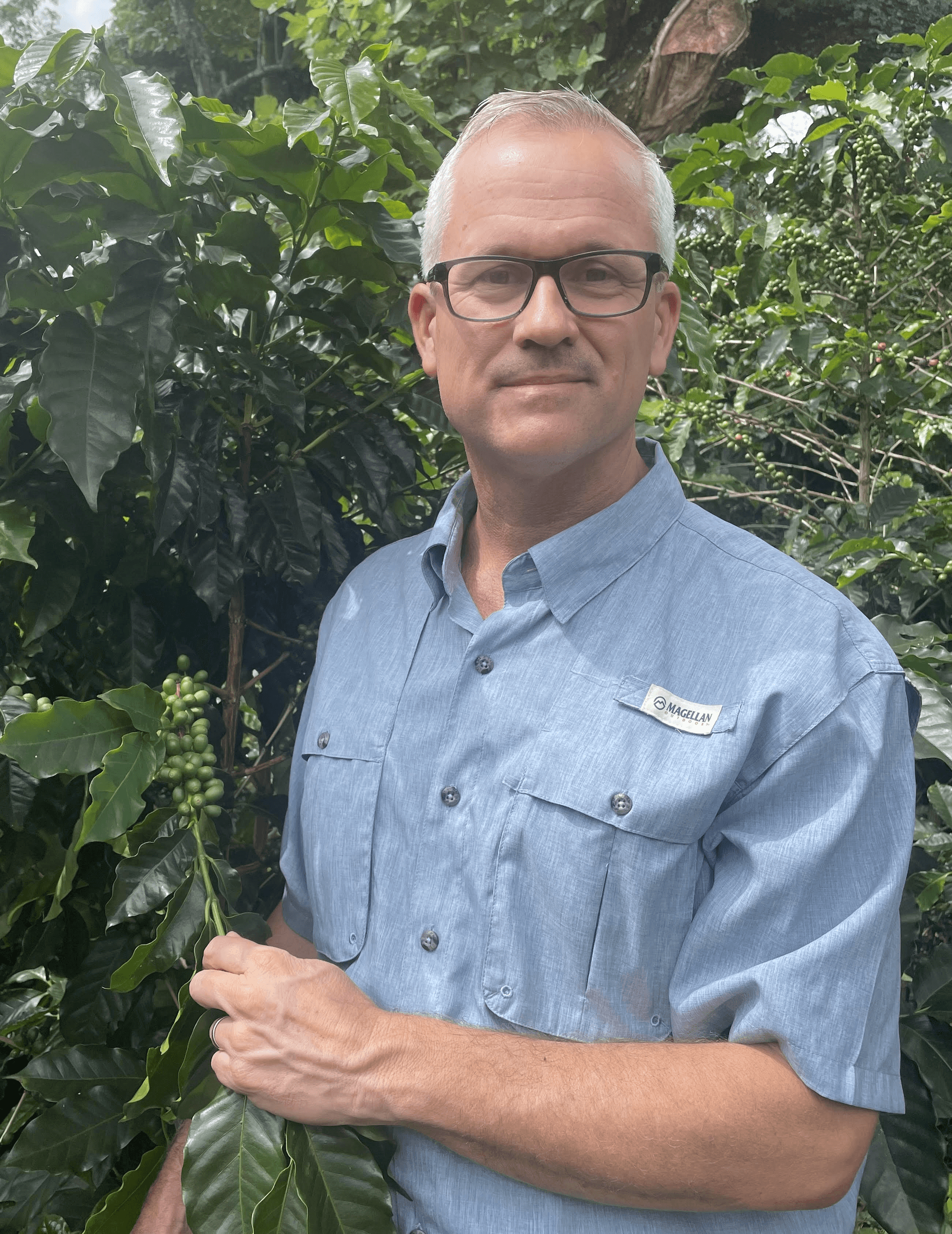WCR welcomes Nick Muir, new Breeding Manager
A brief profile on the latest addition to our global team

World Coffee Research (WCR) is thrilled to announce the recent appointment of Nick Muir to the position of Breeding Manager.
Nick comes to WCR with 25+ years of experience in the genetic improvement and propagation of woody plant species in New Zealand, Costa Rica, Mexico, and the United States, and a major focus of his work has been realizing genetic gain and getting improved plants into the hands of farmers.
Nick has held positions in forest genetics, varietal testing, and clonal forestry at the International Forest Company (IFCO) Seedlings, Cellfor, and Temple-Inland respectively. He holds a Master of Science degree from Centro Agrónomico Tropical de Investagión y Enseñanza (CATIE), one of WCR's partner institutions.
Nick is responsible for managing the development of enhanced coffee germplasm in the Innovea Global Coffee Breeding Network in close collaboration with other breeders at WCR and partners at research institutions in Costa Rica, El Salvador, and Rwanda.
WCR's Communications Manager, Maeve Holler, spoke with Nick and asked him a few questions about his personal and professional experiences with coffee, what he hopes to accomplish in his new role given his expertise in genetic improvement, and what he enjoys doing in his spare time at his home in Costa Rica.
What is your experience working with coffee?
I am very new to working with coffee. I have over twenty-five years of experience in the genetic improvement of woody species in several countries. There are a lot of parallels between breeding objectives and methods. I hope that my experiences will contribute to the pool of knowledge in the global effort to breed coffee for a changing world.
What has been the main focus of your research throughout your career?
Genetic improvement and propagation of woody plant species. My most recent role involved very large-scale production of what we in coffee breeding would call F1 seed production. The focus of plant breeding is to produce healthy and productive plants that are profitable for farmers to cultivate.
How do you plan to apply your expertise working with other tree crops to your role at World Coffee Research?
Trees (including coffee) have long breeding cycles. Having insight into the performance and health of our trees through molecular biology tools, allows us to make better selections faster. Advanced propagation techniques will then help us to deliver superior varieties to farmers sooner.
What excites you about working for World Coffee Research? What drew you to the organization?
I graduated with a Master's Degree from CATIE in Costa Rica. CATIE is an agricultural university that aims to bring prosperity and stability to rural people in the American Tropics. World Coffee Research brings novel tools and perspectives to the challenges of cultivating coffee and I am excited to contribute towards those goals.
What do you hope to contribute in your role as a Breeding Manager?
World Coffee Research will work on the development of new varieties of coffee at our Breeding Factory in Costa Rica. But even more importantly, this initiative will distribute novel coffee germplasm around the world and WCR will support cooperating countries so that they can strengthen the development of new coffee varieties for the specific needs of their farmers and growing environments.
Where do you live and what do you love about it?
My wife, daughter, and I live on a hill on the western edge of Costa Rica’s Central Valley. We have a lot of beautiful birds that visit our garden, including toucans, parrots, hummingbirds, and many migratory species during the North American winter.
What do you enjoy doing in your spare time?
Costa Rica is a small country with an incredible variety of environments from beaches to rainforests and even the treeless paramo of the mountain ranges. Over the past thirty years, Costa Rica has undergone an incredible process of reforestation and many bird and animal species have become common again. Every time we go to the forest, we see a bird or animal species that we had never seen before!
How do you take your coffee?
Most people’s tastes in coffee evolve over time. I take it black—but I want to know the story behind that coffee—what variety, where it is grown, and what processing method was used. I have a lot to learn!